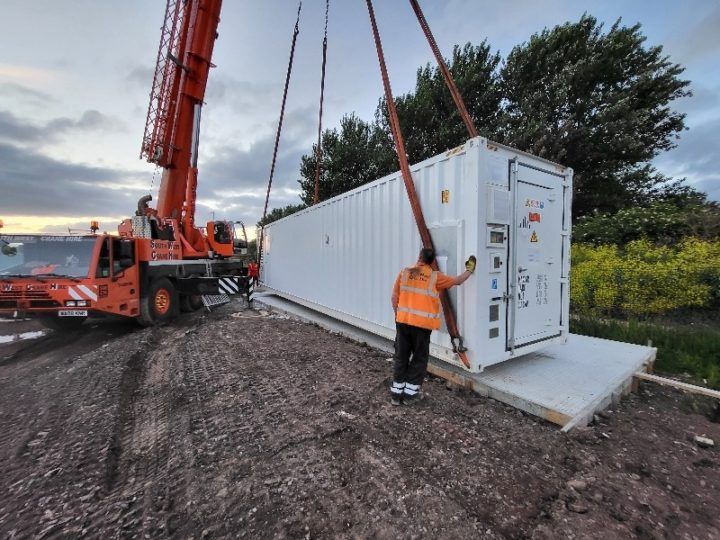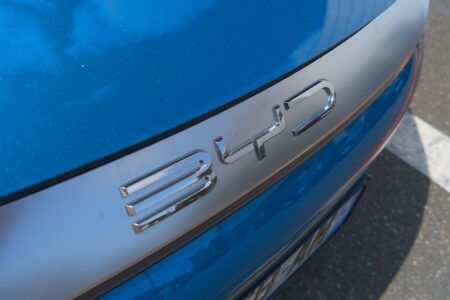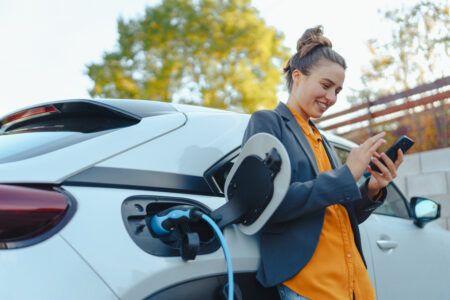National Highways is supporting EV drivers across the England thanks to a multi-million-pound investment into new high-powered charging infrastructure. The government-owned organisation has awarded the £8m Energy Storage Systems – essentially giant battery packs – contract to Ameresco, who will upgrade seven motorway service areas where the grid supply is not enough for high-powered charging infrastructure.
Supported by Costain, it’s hoped the move will help bring an end to ‘charge anxiety’ by improving access to chargepoints across England’s motorways at sites with poor national grid connectivity for EV drivers. The priority sites include Beaconsfield on the M40, Corley on the M6 Northbound, Clacket Lane on the M25, both Eastbound and Westbound, Maidstone on the M20, Taunton on the M5 Northbound and Tebay on the M6 Northbound.
The Energy Storage Systems support high-powered chargers with the aim that all motorway service areas will have at least six high-powered, open access chargepoints by the end of 2023. “We are working differently and innovating to support the switch to zero emission journeys,” said Malcolm Wilkinson, Head of Energy for National Highways. “While we have limited control over the number of petrol and diesel cars on the network, by supporting the expansion of the high-powered chargepoints network, we hope to increase EV drivers’ confidence for all types of journeys, both long and short. These new Energy Storage Systems and the high-powered chargers they supply will help ensure that motorists are unlikely to be caught without somewhere to charge, which is a fantastic move for drivers and the environment accelerating the speed in which we transition to new electric vehicles.”
With the growth in demand for high-powered chargepoints comes pressure to provide the power to supply these, especially at locations where connection to the grid is poor. Energy Storage Systems comprise of grid-scale batteries safely housed in a heated and air conditioned 40ft shipping container, which can support additional high-powered (150kW) electric vehicle chargepoints at those motorway service areas.
Ameresco will work closely with the motorway service area operators Extra, Roadchef, Welcome Break and Westmorland to support them making applications to the local authority for planning permission and to the distribution network operators to secure permission to connect the Energy Storage System to the grid. All seven Energy Storage Systems installed by the end of September 2023.
With a typical storage capacity of 2MWh, the batteries in each system (which will charge overnight when spare electric is available) have enough energy to support over 2 million miles of zero emission motoring each year. To put the energy in perspective, just from a single charge, a system would be capable of meeting the electrical needs of a typical home for roughly eight months.
With petrol and diesel vehicles the largest carbon emission contributor on the roads, it’s hoped easier access to increased numbers of high-powered chargepoints will increase driver confidence in electric vehicles on longer journeys, encouraging people to make the switch. National Highways has previously demonstrated its commitment to electric vehicles, with Energy Storage Systems among a host of measures it’s taking to improve air quality and tackle carbon emissions from road transport as Britain takes steps to become a zero-carbon economy by 2050.





